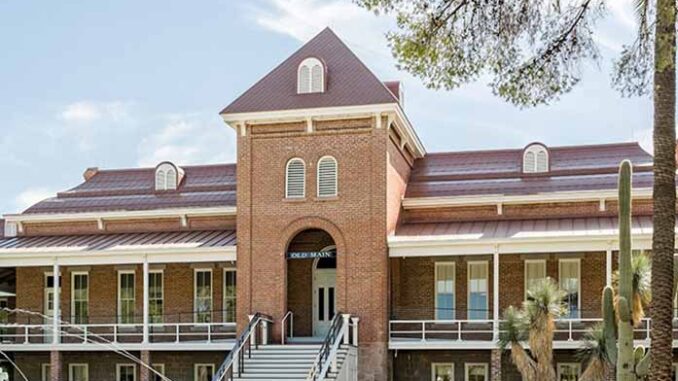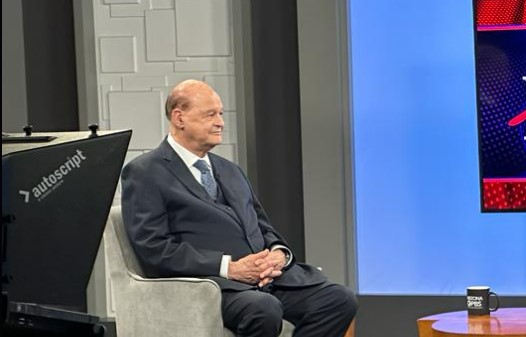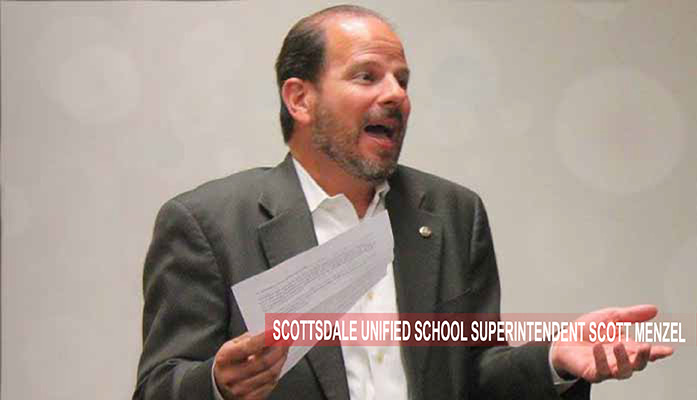
by Elizabeth Troutman | May 8, 2024 | Education, News
By Elizabeth Troutman |
Parents are taking back the power over their children’s education, according to a new report, and Arizona is the second-highest on the parent power chart.
For the first time in two generations, programs and policies that give parents more power over their children’s education are accelerating across the United States, according to the 2024 Parent Power! Index from the Center for Education Reform.
“Not since the beginning of the education reform movement when, between 1991 and 1999, states created 36 new laws providing parents power over their children’s education have we seen such a rapid expansion in an accelerated period of time for education innovation and opportunity,” Jeanne Allen, CER founder and CEO, said in a statement.
Florida is first on the parent power chart, followed by Arizona and Indiana.
Between 2021 and April 2024, 26 new and expanded laws governing parental options, additional flexibility to innovate, and education transparency have taken effect. At least another 600,000 students gained access to a variety of learning approaches across all education sectors.
Recent U.S. migration trends show that three of the top five states in the 2024 Parent Power Index are also among the top five states where people are moving — Florida, Arizona, and North Carolina. More than one million students left public schools to pursue other education opportunities in states with more options for parents.
“Whenever parents are engaged, change occurs,” Allen said. “Time and time again, we’ve seen that information in the hands of parents is power. When parents are able to make informed decisions about their children’s education, and states and communities are permitted to offer a myriad of pathways to enable those decisions, education works better for all students.”
State rank and policy environments are improving overall, particularly in states that have tended to embrace education freedom in general, such as Iowa, West Virginia, Ohio, and Arkansas, the data shows.
Elizabeth Troutman is a reporter for AZ Free News. You can send her news tips using this link.

by Elizabeth Troutman | May 6, 2024 | Education, News
By Elizabeth Troutman |
The principal of Corona del Mar Middle & High School in Newport Beach, Calif., issued a statement on the death of University of Arizona student Erin Jones, who was shot and killed last Sunday.
Jones, a 2022 graduate of Corona del Mar, was shot and killed while attending a house party in Midtown Tucson.
Principal Jake Haley said he was at a loss for words about the untimely loss.
“Erin was a well-known student on the Corona del Mar Campus and the ripple effect of the loss will be felt by many, especially our soccer community where Erin was an active member,” Haley said. “We are providing a space of gathering on campus this week for athletes and others who are directly impacted by the loss of Erin.”
Jones was a sophomore at the University of Arizona.
Police said officers were called to the 3200 block of E. 5th St. after several people called 911 to report the shooting.
Officers found University of Arizona student Erin Jones, 20, outside the home. Jones’ friends said she was waiting for an Uber when she was fatally shot, CBS News reported. She was taken to Banner University Medical Center where she died.
No arrests have been made in the shooting.
“Details are extremely limited at this time, and investigators are actively working on what led up to the shooting,” a Tucson Police Department press release says. “They believe there was a large gathering at the residence before the shooting took place, and several witnesses left the area prior to police arriving.”
Elizabeth Troutman is a reporter for AZ Free News. You can send her news tips using this link.

by Staff Reporter | May 2, 2024 | Education, News
By Staff Reporter |
Arizona Department of Education Superintendent Tom Horne advised K-12 schools to look to Arizona State University (ASU) and University of Arizona (UArizona) for how to respond to Gaza protesters.
In a press release issued on Monday following a long weekend of higher education protests against Israel in Arizona and nationwide, Horne praised ASU and UArizona leadership — specifically presidents Robert Robbins and Michael Crow — for their handling of the mass protests compared to other universities, which he characterized as antisemitic.
“Robert Robbins and Michael Crow deserve exceptional praise for standing up to antisemitism on their campuses. This stands in stark contrast to how many colleges, universities and ideological faculty members have kowtowed to disruptive pro-Hamas demonstrations,” said Horne. “It is also an excellent template for K-12 schools in Arizona to follow should any attempt be made by students to copy the type of protests that have shut down portions of college campuses and caused Jewish students to feel unsafe.”
Horne warned that history would repeat itself, should those in leadership not be proactive with handling protests. The superintendent cited several incidents of violence that broke out at other campuses nationwide, including rocks reportedly thrown at Jewish students at Columbia University and a pole with a Palestinian flag being stabbed into the eye of another Jewish student at Yale University.
“Our DNA is no different from the DNA of Germans in the 1930s, and Nazis started with young thugs attacking people on the street,” said Horne. “We need to be vigilant.”
Law enforcement for both campuses were swift to deter and move out protesters as they attempted to establish encampments.
Of the two institutions, UArizona had the calmer turnout in terms of protestors. At ASU, over 70 arrests were made, 15 of whom were students, after protesters set up an illegal encampment as part of their protest.
UArizona protesters also set up an encampment on Monday, but later dispersed. After those protesters left, officials barricaded the campus mall to prevent further encampments.
Law enforcement had to drive out the protesters and relied on assistance from fraternity members to assist in cleanup.
However, by Tuesday protesters returned to encamp again elsewhere on campus.
A majority of the Gaza protests were concentrated along the upper east coast. The following higher education institutions have experienced Gaza protests over the last few weeks:
- California: California State Polytechnic Institute, Stanford University, University of Southern California Los Angeles;
- Colorado: Auraria Campus;
- Connecticut: University of Connecticut, Yale University;
- D.C.: George Washington University;
- Delaware: University of Delaware;
- Florida: Florida State University;
- Georgia: Emory University, University of Georgia;
- Illinois: Northwestern University, University of Illinois Urbana-Champaign;
- Indiana: Indiana University Bloomington;
- Massachusetts: Emerson College, Harvard University, Massachusetts Institute of Technology, Northeastern University, Tufts University;
- Michigan: Michigan State University;
- Minnesota: University of Minnesota;
- Missouri: Washington University.
- North Carolina: University of North Carolina at Chapel Hill;
- New Jersey: Princeton University;
- New Mexico: University of New Mexico Albuquerque;
- New York: City College of New York, Columbia University, Cornell University, Fashion Institute of Technology, the New School, New York University, University of Rochester;
- Pennsylvania: Swarthmore College, University of Pennsylvania;
- Ohio: Ohio State University;
- Rhode Island: Brown University;
- South Carolina: University of South Carolina;
- Texas: Rice University, University of Texas at Austin;
AZ Free News is your #1 source for Arizona news and politics. You can send us news tips using this link.

by Elizabeth Troutman | Apr 29, 2024 | Education, News
By Elizabeth Troutman |
Update: The Scottsdale School Board passed Superintendent Scott Menzel’s contract renewal in a 3-2 vote. Board Members Libby Hart-Wells, Zach Lindsay, and Julie Cieniawski voted to renew the contract while Board Members Amy Carney and Carine Werner voted not to renew the contract.
The Scottsdale Unified School District Governing Board is expected to be asked to renew controversial Superintendent Scott Menzel’s employment contract during its meeting on Tuesday.
Three of Menzel’s biggest allies on the Governing Board, Zach Lindsay, Libby Hart-Wells, and Julie Cieniawski, will not seek reelection and will vacate their seats on Dec. 31. Outgoing boards are usually reluctant to extend employment contracts for administrative positions during an election cycle, but a renewal of Menzel’s contract seems unlikely with any future board.
Arizona Superintendent of Public Instruction Tom Horne called for Menzel’s removal after “unacceptable” comments made by Menzel were revealed last February.
“Critical race theory has no place in Arizona schools,” Horne said at the time. “Superintendent Scott Menzel’s comments are unacceptable. Superintendent Horne joins Scottsdale legislators and parents calling for the removal of Superintendent Menzel.”
Menzel had claimed “white identity” is “problematic.”
“There’s a misperception that educational equity is really only for ethnically and racially diverse districts. But White people have racial identity as well, and in fact [it is a] problematic racial identity that we typically avoid,” Menzel told David Spitzley of the Torchlight in 2019.
Arizona state legislators and parents joined Horne in calling for his removal.
State Sen. John Kavanagh and Representatives Joseph Chaplik and Alexander Kolodin, who all represent Legislative District 3 that includes Scottsdale, wrote an open letter to members of the Governing Board condemning Menzel for “offensive and hateful comments he made in a 2019 interview.”
The Scottsdale Unified School District Governing Board unanimously approved a three-year contract with Menzel in March 2020. The Board unanimously approved a $205,000-plus contract, to run through June 30, 2023.
The Board renewed Menzel’s contract in May 2022 to run through 2025 with his base annual salary increased to $216,000.
Under Menzel’s leadership over the past three years, Scottsdale Unified enrollment has dropped by more than 1,500 students. Science scores have dropped 24%.
Less than 50% of 8th grade students are proficient in math, but 94% of students in the district graduate.
Members of the public can email the board in opposition to the extension at govbrd@susd.org.
Elizabeth Troutman is a reporter for AZ Free News. You can send her news tips using this link.

by Daniel Stefanski | Apr 29, 2024 | Education, News
By Daniel Stefanski |
A bipartisan school tax bill has become law in the State of Arizona.
Earlier this month, Governor Katie Hobbs signed HB 2173, which “revises statutes relating to tax levy calculations for a common school district not within a high school district (Type 03 district), [and] details session law provisions that redirect monies collected by the additional tax in a Type 03 district in TY 2023 to the state General Fund” – according to the overview from the Arizona House of Representatives.
According to a press release from Arizona legislative Republicans, this bill “was introduced after mistakes identified in the current fiscal year caused dramatic tax increases in several rural school districts, most prominently in the Continent Elementary School district in Green Valley.” Due to this bill’s enactment, “elementary-only districts like Continental will no longer pay tuition for these high school students, but rather they will be ‘open enrolled’ in the school of their choice like any other student around the state.”
The three legislators in the district that was particularly targeted by the bill – Republican State Representatives Gail Griffin and Lupe Diaz and State Senator David Gowan – issued statements to cheer on the success of this emergency measure.
“Property tax increases significantly impacted Green Valley residents this year, prompting immediate actions to remedy this situation,” said Representative Gail Griffin. “Despite the complexities involved, collaboration with school finance experts has led to a sustainable solution.”
“We will resolve the issue of overpaid property taxes for these districts in the upcoming budget, Representative Lupe Diaz added. “We have proposed a reasonable resolution to the Governor’s office to provide targeted funding to those rural school districts, so taxpayers receive an equitable reduction in order to pay them back for last year’s overcharge.”
“As soon as we were made aware of these unintended consequences, we swiftly came together to find a solution,” said Senator Gowan. “My amendment on this bill ensures the dollars that should not have been collected will be returned to taxpayers in the form of a deduction on the following year’s property tax. I also made sure the school districts most disproportionally affected in LD-19 were taken care of.”
HB 2173 was sponsored by House Education Committee Chairwoman Beverly Pingerelli.
Daniel Stefanski is a reporter for AZ Free News. You can send him news tips using this link.

by Staff Reporter | Apr 29, 2024 | Education, News
By Staff Reporter |
Peoria Unified School District (PUSD) parents expressed their displeasure over plans to reduce the privacy in several high schools’ bathrooms during this week’s regular board meeting.
The district is planning to remodel one set of male and female restrooms at Cactus High School and Ironwood High School, with the main goals of providing clearer visibility into the restrooms and increasing ADA compliance.
In presenting the proposed plans, Acting Superintendent Kevin Molino explained that students felt uncomfortable with other students using the bathrooms as private hangout spots.
“As we gather feedback, we’ll find a balance between privacy and safety,” said Moleno.
In order to remedy this, the entrances to the new bathrooms would provide a direct line of sight into the main gathering space between the sinks on one wall and the private bathroom stalls on the other.
Corky Haynes, a community member, expressed concern that the students’ privacy wouldn’t be respected — especially the girls.
Teddy Todd, another community member, asked that there be more privacy given to the girls’ restrooms: a narrower entryway view, and a wider and taller divider for the sinks (for washing out garments). Todd also suggested adding doors to the urinals, and transforming the service closet into a private, lockable single-stall bathroom with a sink and the water tank closeted off.
Trina Berg, an Ironwood High School and Peoria Education Association (PEA) President, said that the increased visibility would make teachers’ jobs easier in managing students congregating in bathrooms. Currently, Berg says teachers either have to yell or go into the bathrooms to remove students.
“As a teacher, the restrooms are a big source of behavior issues, because our kids are congregating in there,” said Berg. “Yes, privacy is a thing, but the doors are there, they’re shut.”
Mikah Dyer, an Ironwood High School senior and PUSD board candidate, said that the proposed renovations would improve safety and usability.
“The number one problem I hear about bathrooms in Ironwood is the vaping that’s happening and the overcrowding that’s happening during passing periods during lunches,” said Dyer. “Teachers need accessibility and visibility.”
The proposed bathroom renovations include vape sensors in each stall.
Jeff Toby, a parent of three female PUSD students, said his daughters were uncomfortable with the proposal.
Tiffany Benson, a community member, expressed concern that the bathroom remodels were another step to ending gendered bathrooms. Benson also said that the schools needed to be more proactive in addressing the students who were repeat offenders for bad behaviors in the bathrooms.
Wendy Rose, mother of two current PUSD students, said that the female students she asked were uncomfortable with the lack of privacy in the bathrooms.
Christina, mother of two PUSD students, wondered at the lack of urinals and, like others, the lack of privacy presented by noise issues.
Board member Bill Sorensen said there needed to be a way of gathering more student feedback on the proposal before the district moves forward.
Board member Heather Rooks objected to the policy as another alleged step toward getting rid of gendered spaces.
AZ Free News is your #1 source for Arizona news and politics. You can send us news tips using this link.






